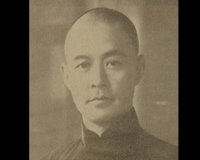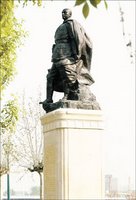Japanese gathered on April 20 to honor Adolf Hitler's 125th birthday. The parade started at Tokyo's Ikebukuro Central Park East where seven Class-A war criminals including Hideki Tojo were hanged by international court post WWII. Participants include youth as well as elders.
Banners advocating Japanese Supremacy were displayed along Nazi flags. Posters of South Korean President Park Geun-hye were defaced and marked 'beggar' and 'prostitute'.
A national politician, former vice president of the nationalist "Restoration Political Party-New Wind", Hiroyuki Seto made the following remark: I don't know what's wrong with agreeing with Hitler. Is it the holocaust of six million Jews? Are there still people who believe that happened? That's a lie. It's the same fabrication of history as the Rape of Nanking and the forced comfort women.
The admiration to the Fuehrer is deeply rooted in generations of Japanese. Last year, referring to a constitution revision, the Deputy Prime Minister and Minister of Finance commented "we can learn from techniques of the Nazis", who changed Germany's Weimar constitution "unnoticed".
The gathering and parade were escorted by police, as it had been registered and approved.
Prior to US president Obama's visit on April 23, Japanese prime minister Shinzo Abe and his cabinet members paid respect to a shrine Yasukuni where war criminals were commemorated.
Neighboring countries such as China and South Korea see Yasukuni as a symbol of Japan's militarism, and repeated visits by Japanese leadership as a lack of remorse over the pain Japan had forced on peoples in Asia.
On April 1, 2014, the US Justice Department confirmed that 35 Japanese war criminals were banned from entering US. Most of them either served in Unit 731 which carried out horrifying experiments on live human subjects, or operated 'comfort stations', where females from occupied countries were enslaved as sex tools for Japanese army.






